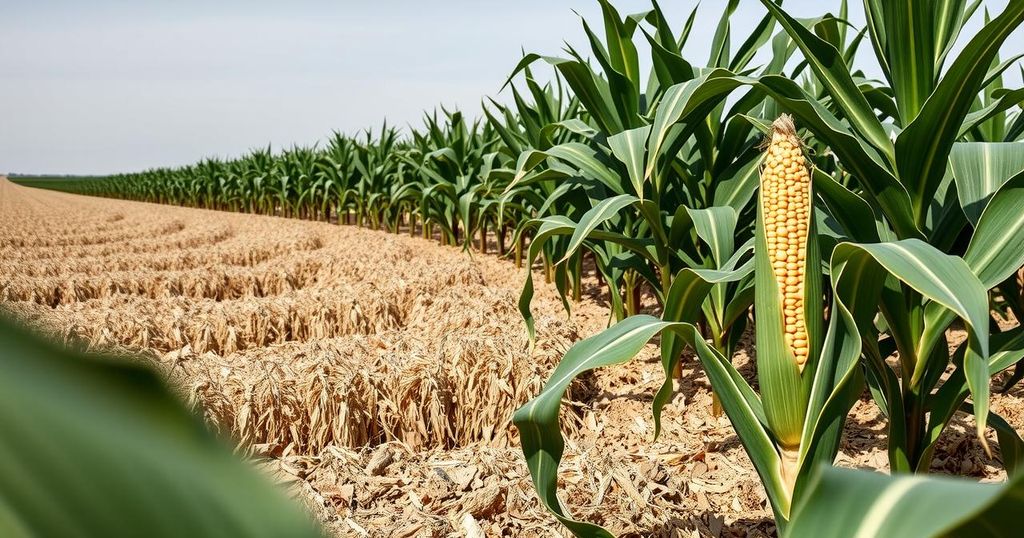Dry Weather in Argentina Drives Up Soybean and Corn Prices

Dry weather in Argentina has led to increased prices for soybean and corn futures on the Chicago Board of Trade, with soybeans up 1.29% and corn up 0.78%. Kazakhstan has boosted its grain exports, while French farmers protest unfavorable conditions. These developments highlight significant market shifts due to climate change and geopolitical influences in agricultural trade.
Recent developments in the agricultural commodities market have been significantly influenced by dry weather conditions in Argentina, raising concerns over crop yields and consequently impacting soybean and corn futures. On the Chicago Board of Trade (CBOT), soybean prices surged 1.29% to reach $10.04 per bushel, while corn prices climbed by 0.78% to $4.54 per bushel. These fluctuations emerge amid prolonged hot, dry spells affecting the projected 2024/25 harvests in Argentina, despite earlier beneficial rainfall. Additionally, wheat futures experienced a rise of 0.8%, reaching $5.33 per bushel, largely due to global supply constraints arising from weather disruptions.
Kazakhstan has taken advantage of these challenges by exporting 3.7 million metric tons of newly harvested grain from September to December, reflecting a substantial increase of 54% compared to the previous year. However, not all regions are witnessing growth; French farmers have expressed dissatisfaction, protesting against perceived unfair competition and stringent agricultural policies.
The agricultural commodities market is witnessing a transitional phase greatly influenced by climatic factors, notably the adverse dry conditions in Argentina that threaten its crop outputs. The interplay between weather challenges and commodity pricing reveals underlying vulnerabilities in global supply chains and agricultural trade. Moreover, Kazakhstan’s increase in grain exports underscores the shifting dynamics of international trade, while the geopolitical implications of these changes emphasize the broader impact on global agricultural policies and practices.
In conclusion, the ongoing dry weather in Argentina is reshaping the global agricultural commodities landscape, prompting significant price increases for key crops like soybeans and corn. The response from countries such as Kazakhstan indicates shifting trade patterns as nations adapt to climatic and market pressures. This scenario not only highlights the direct economic implications of agricultural disruptions but also raises awareness of the broader environmental factors affecting global food security.
Original Source: finimize.com







